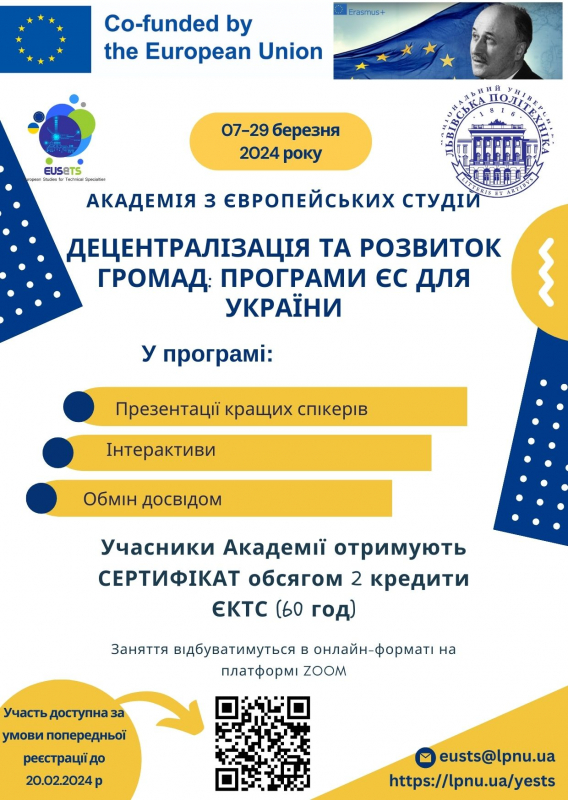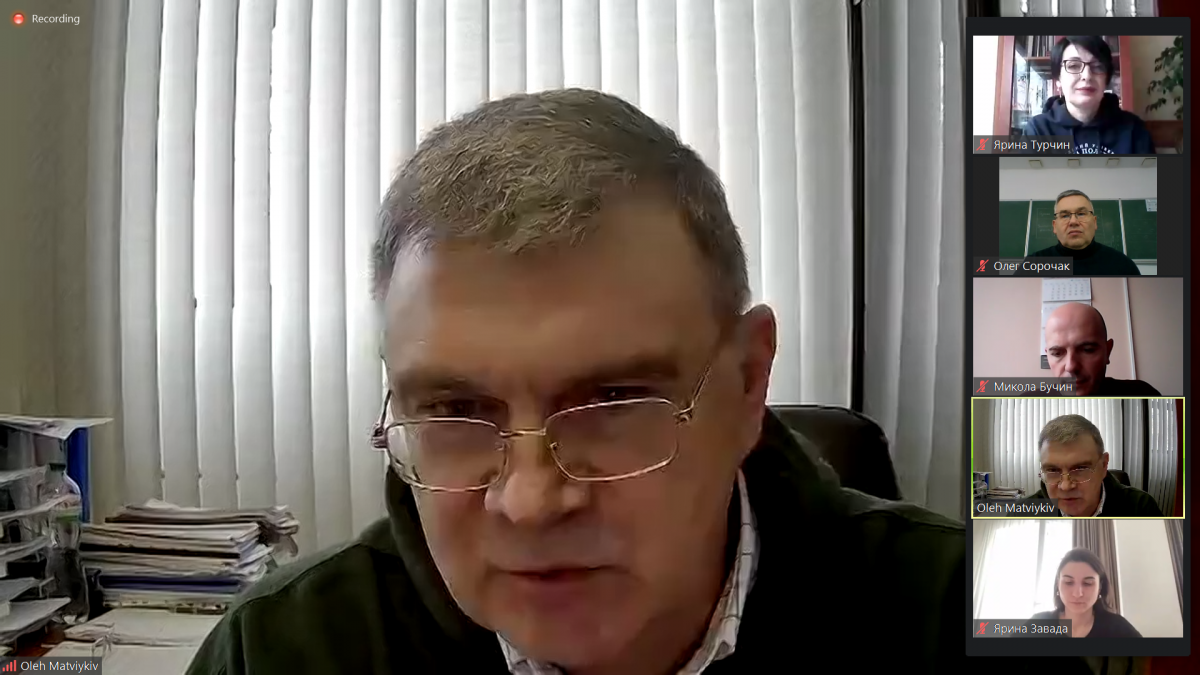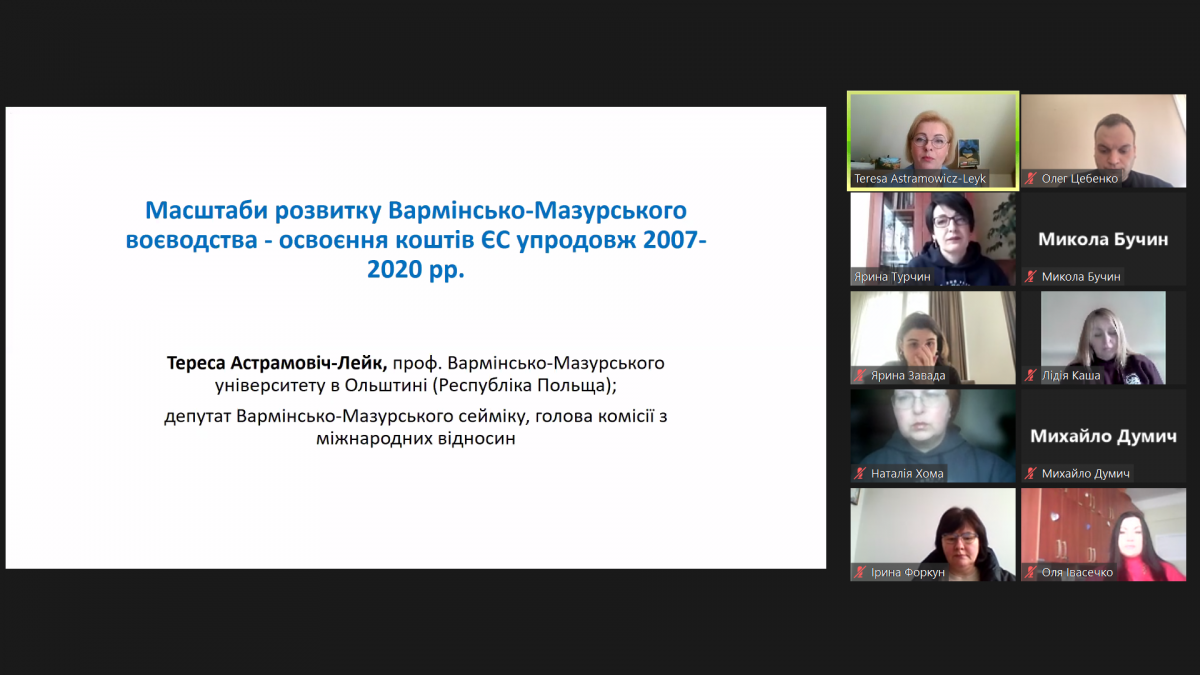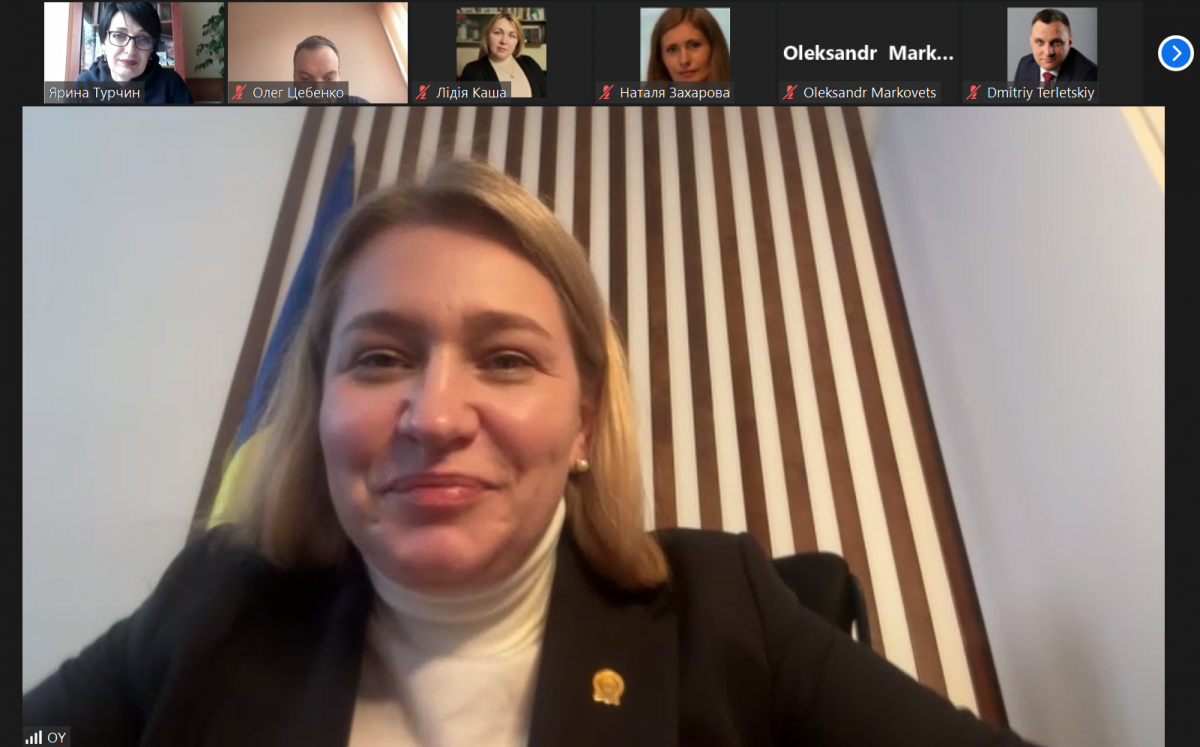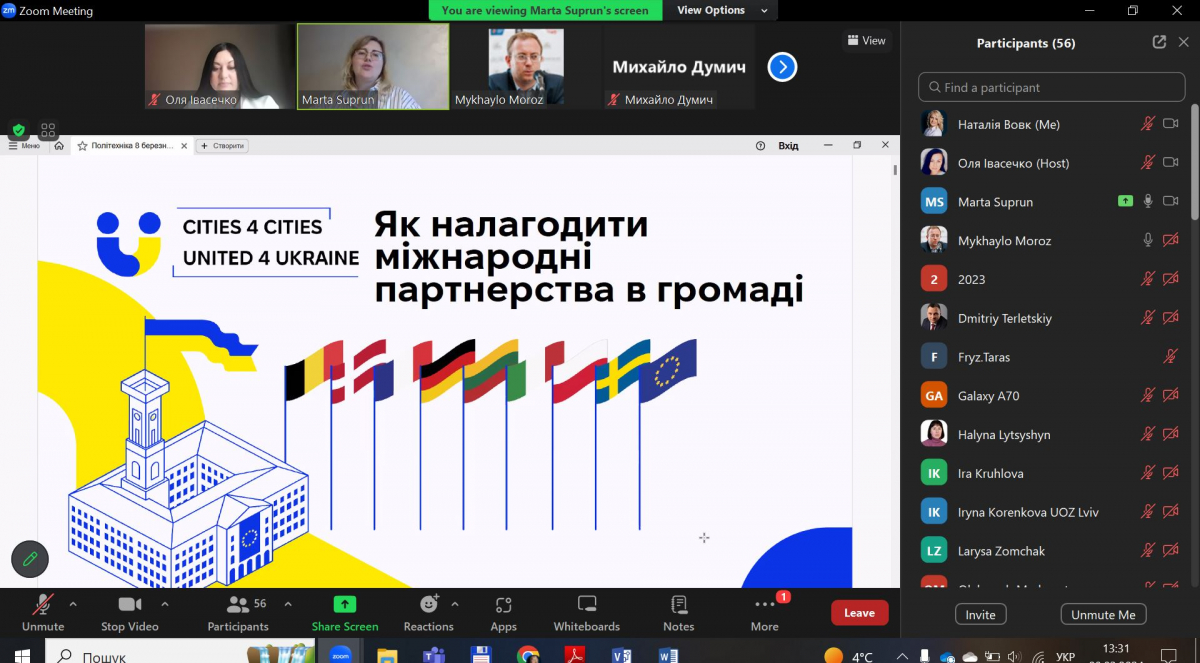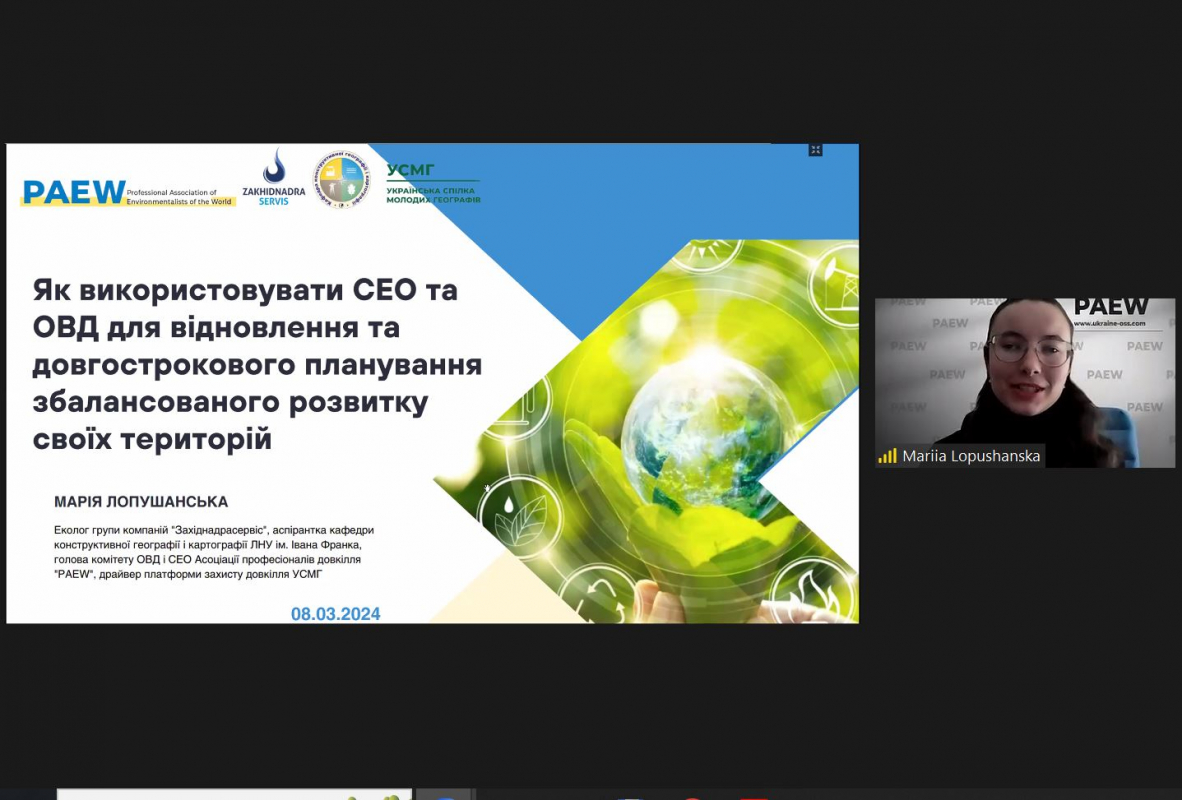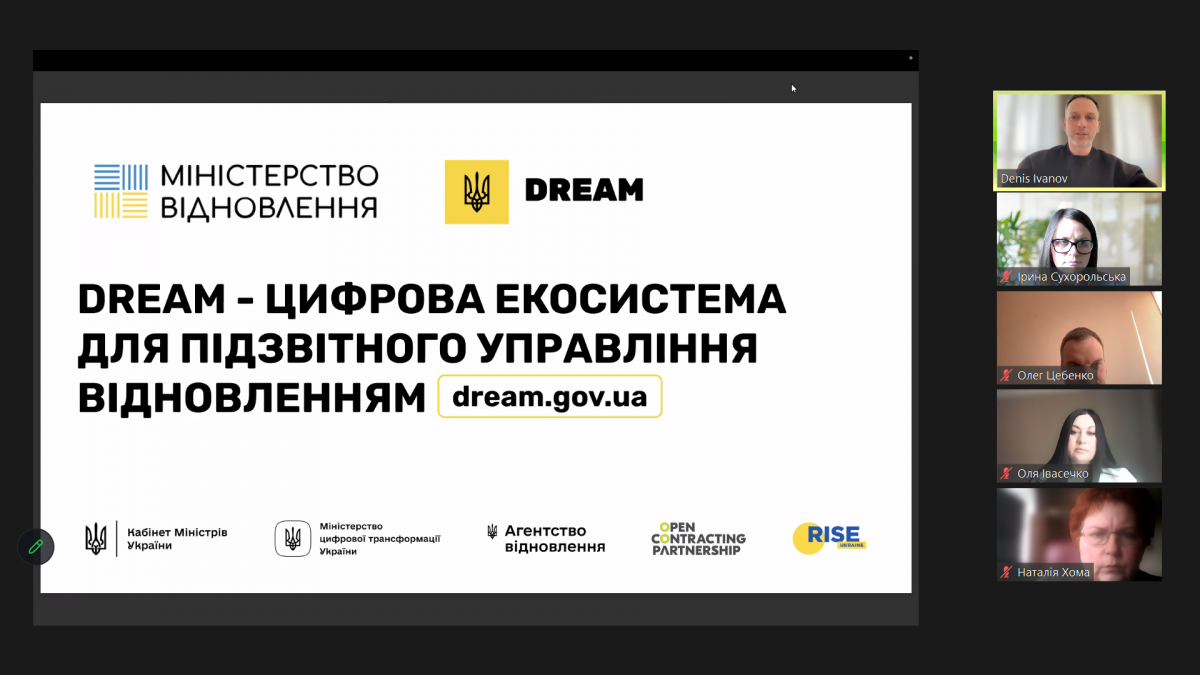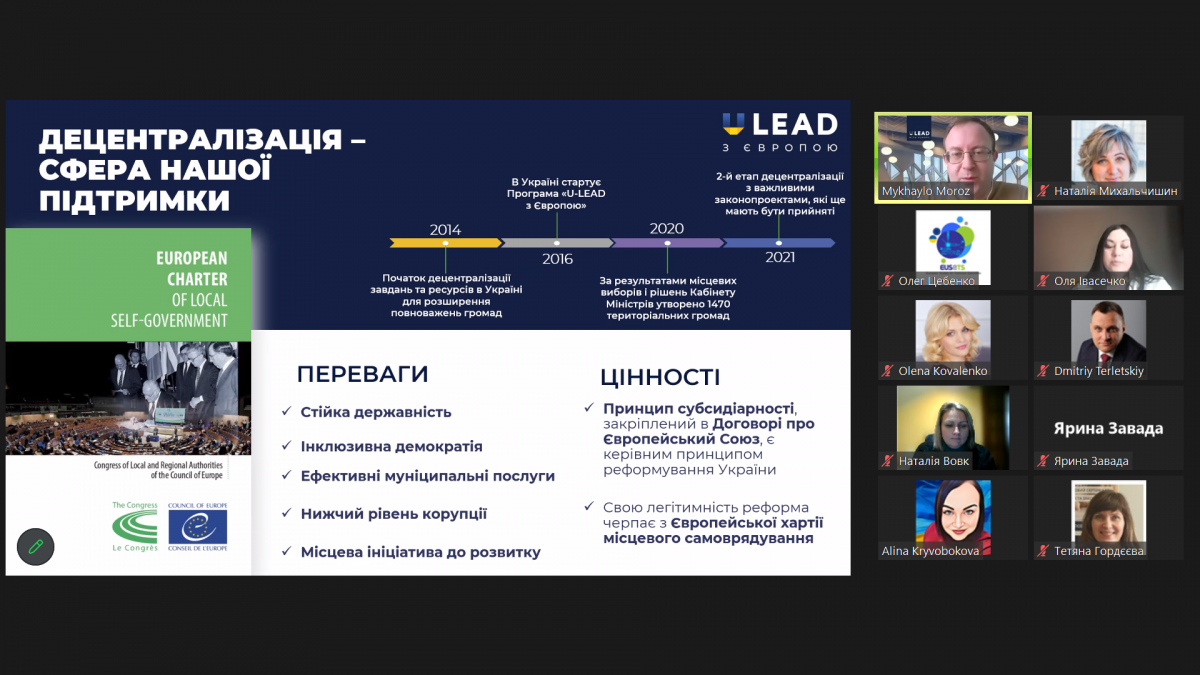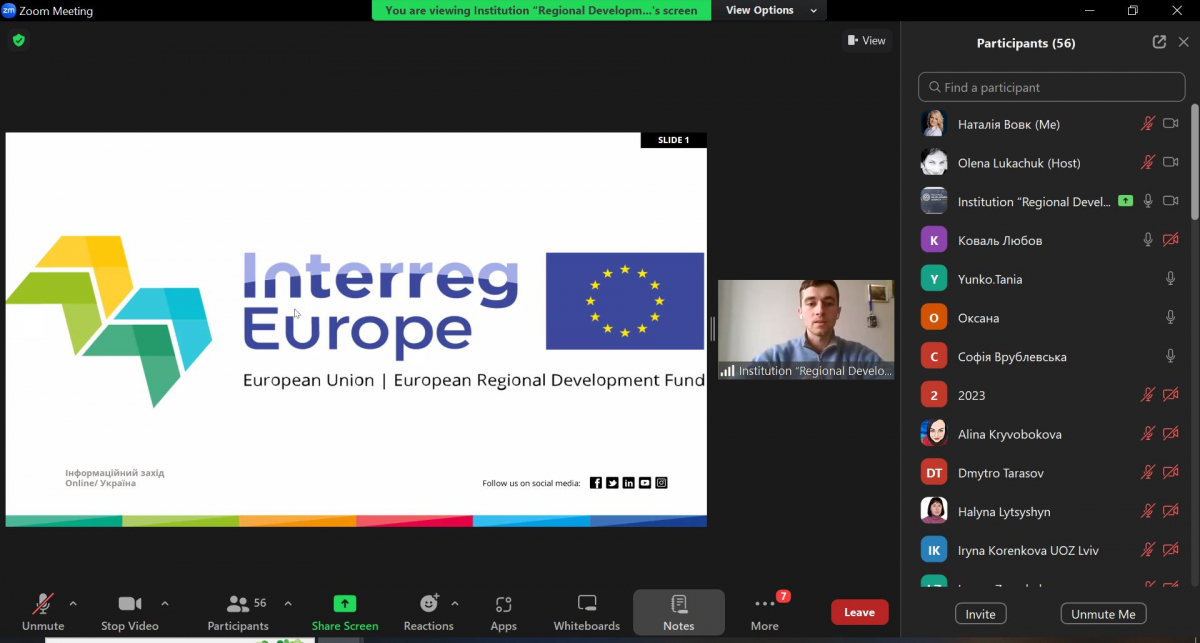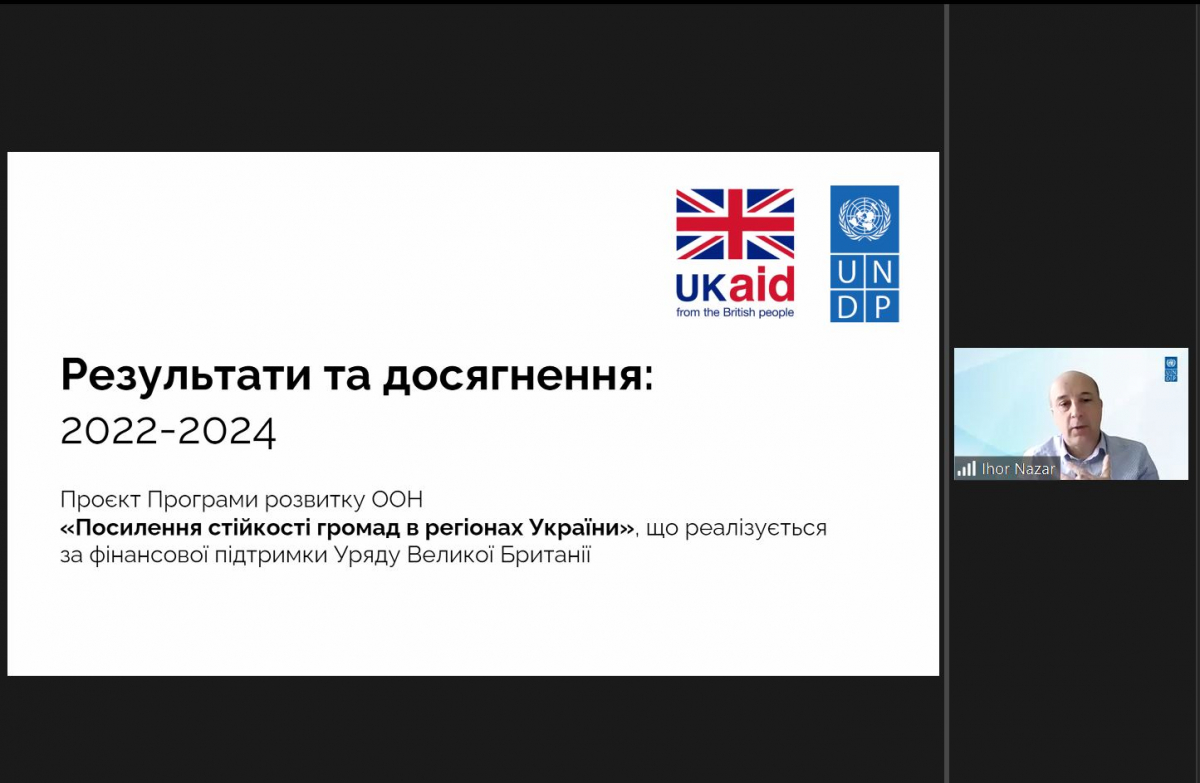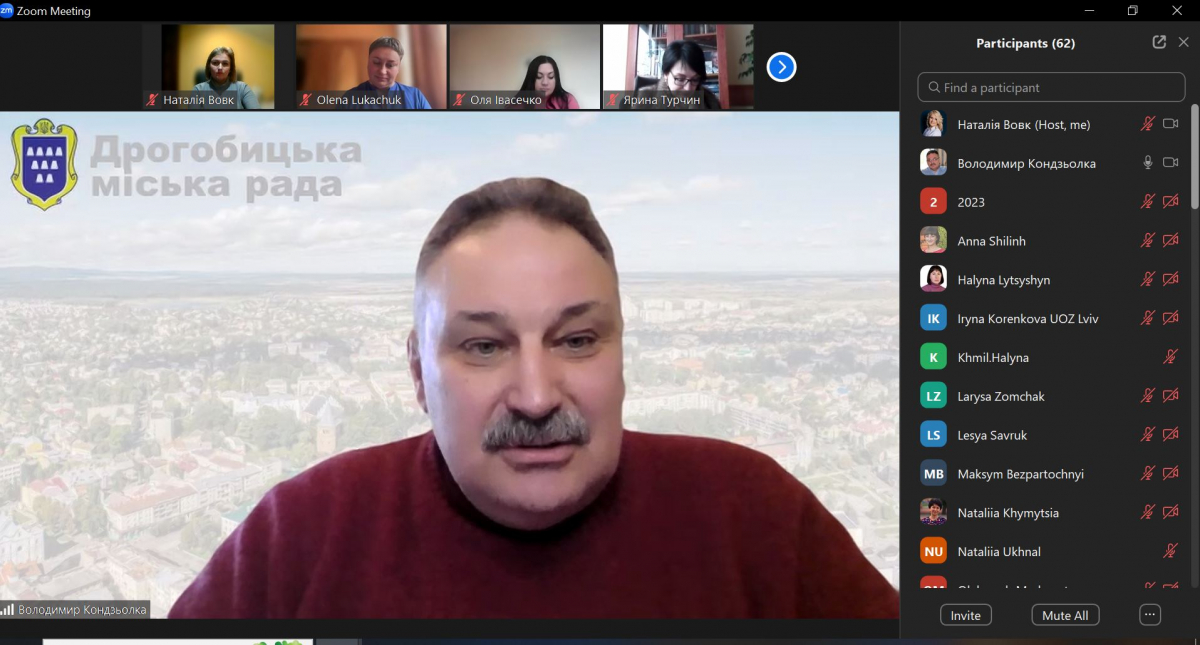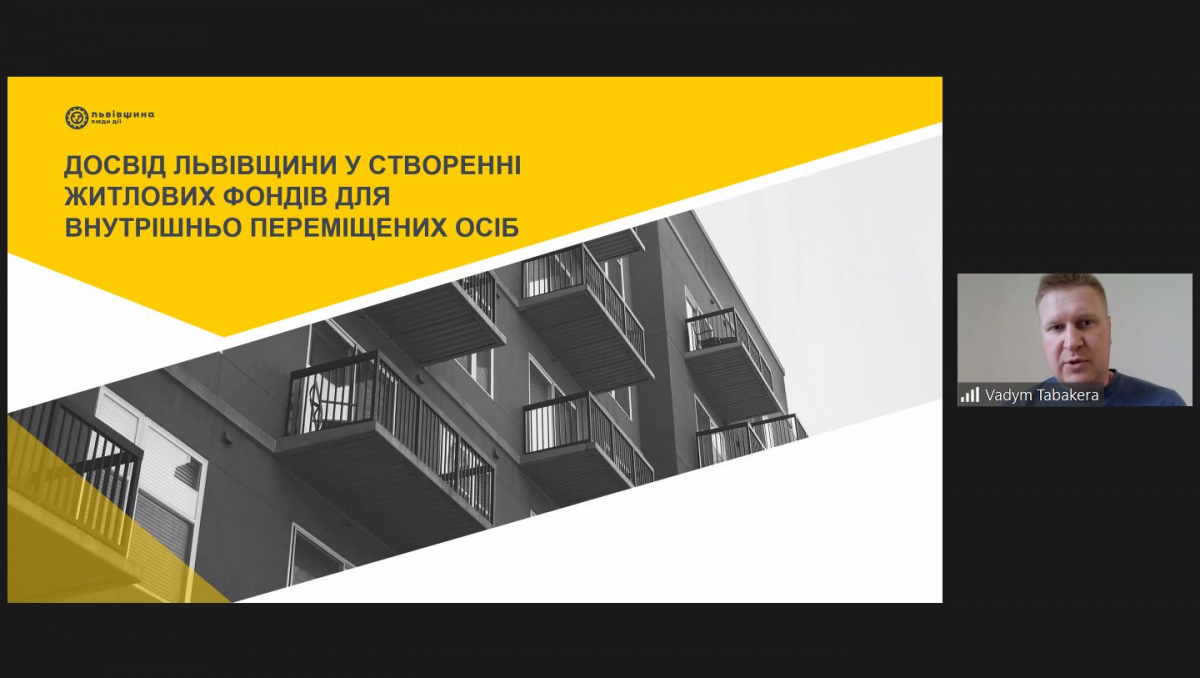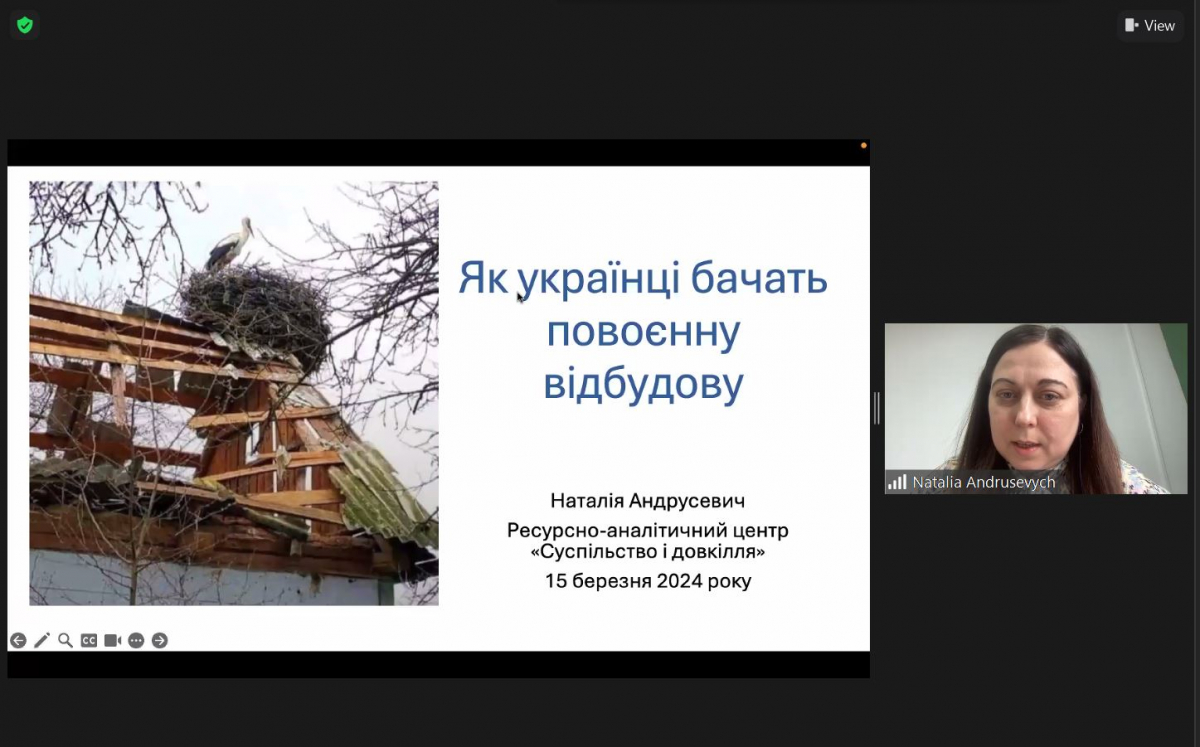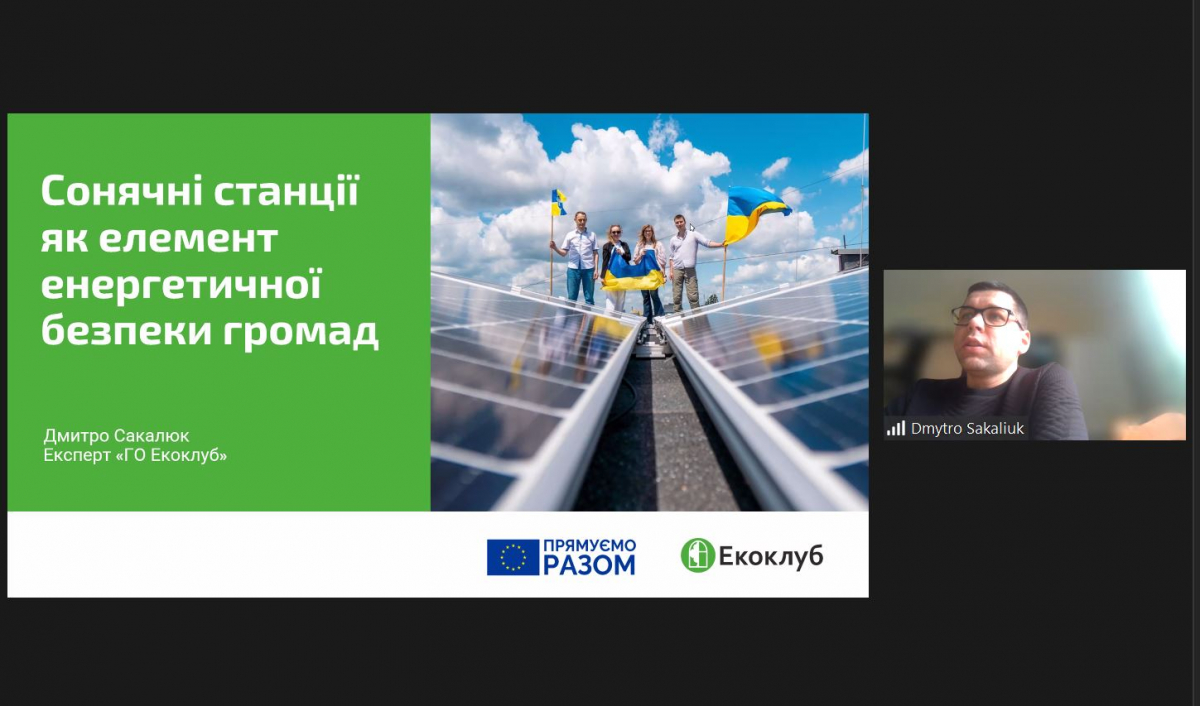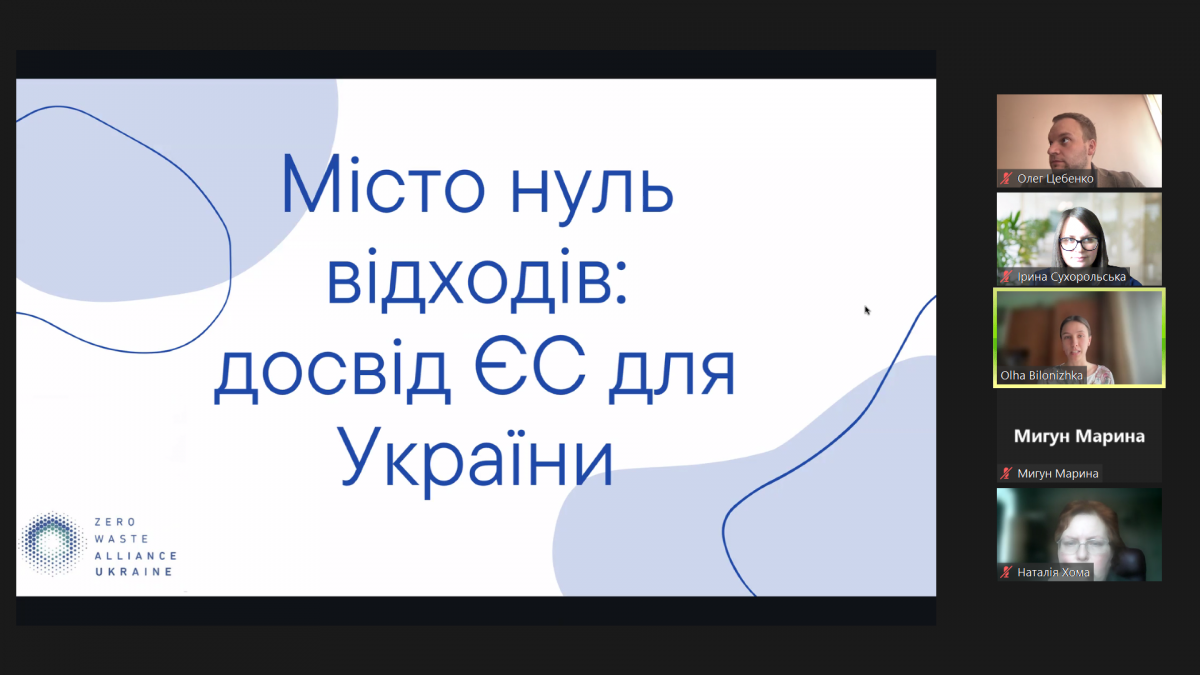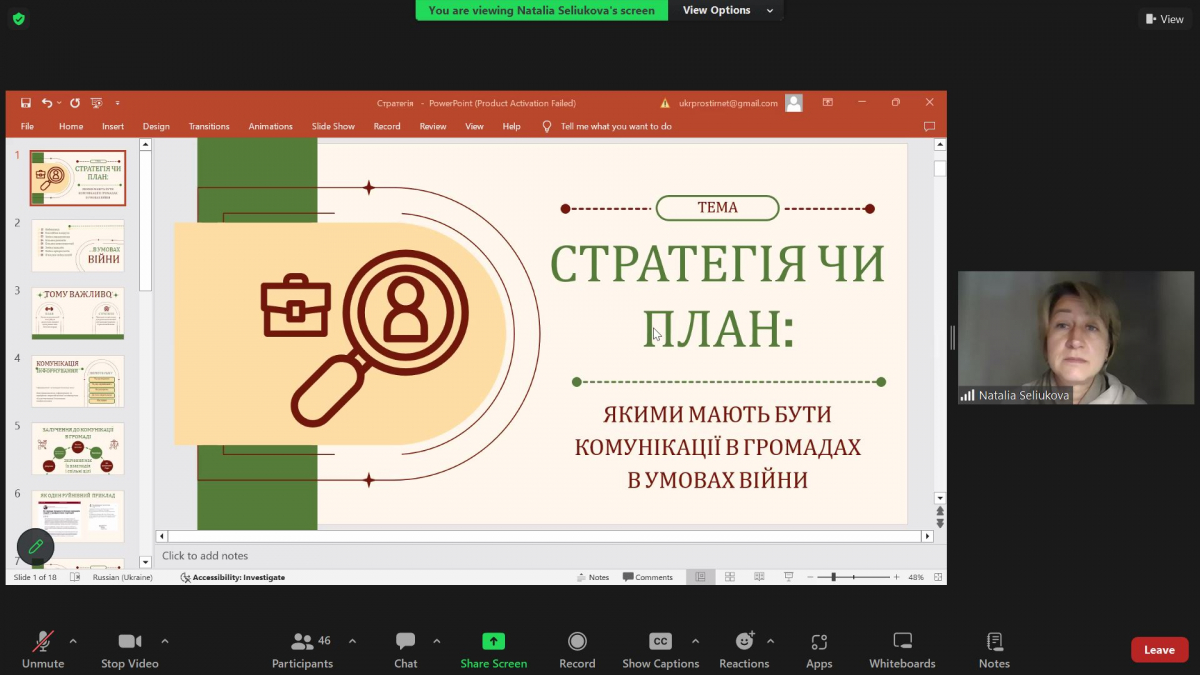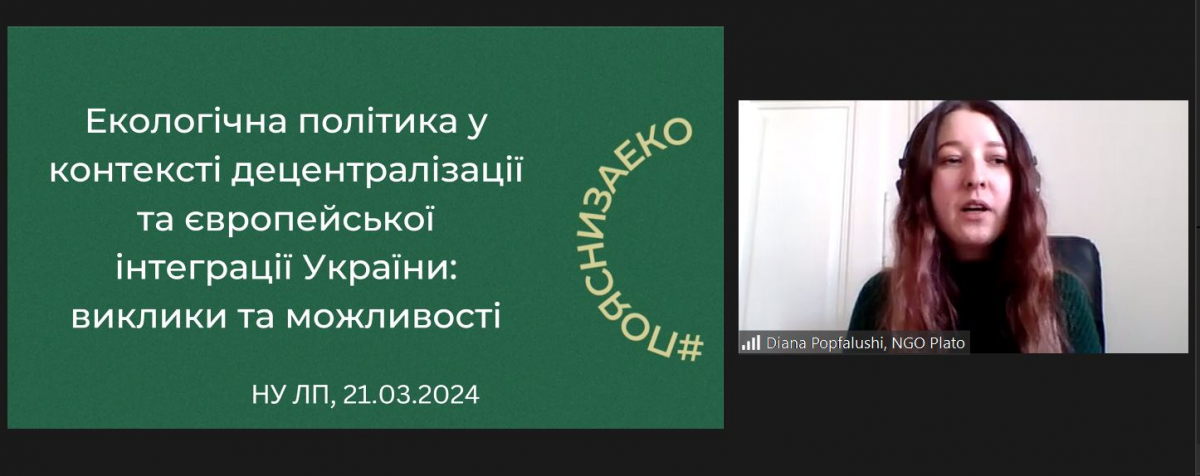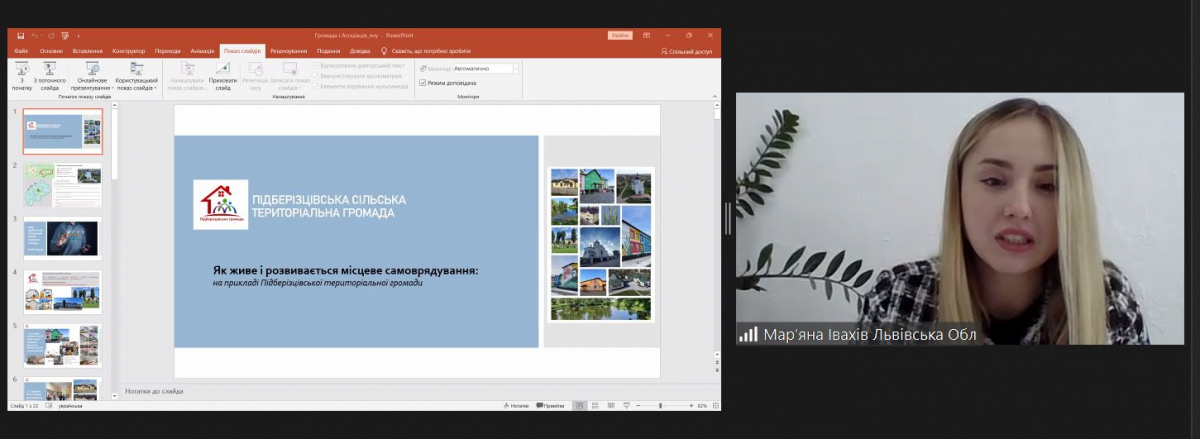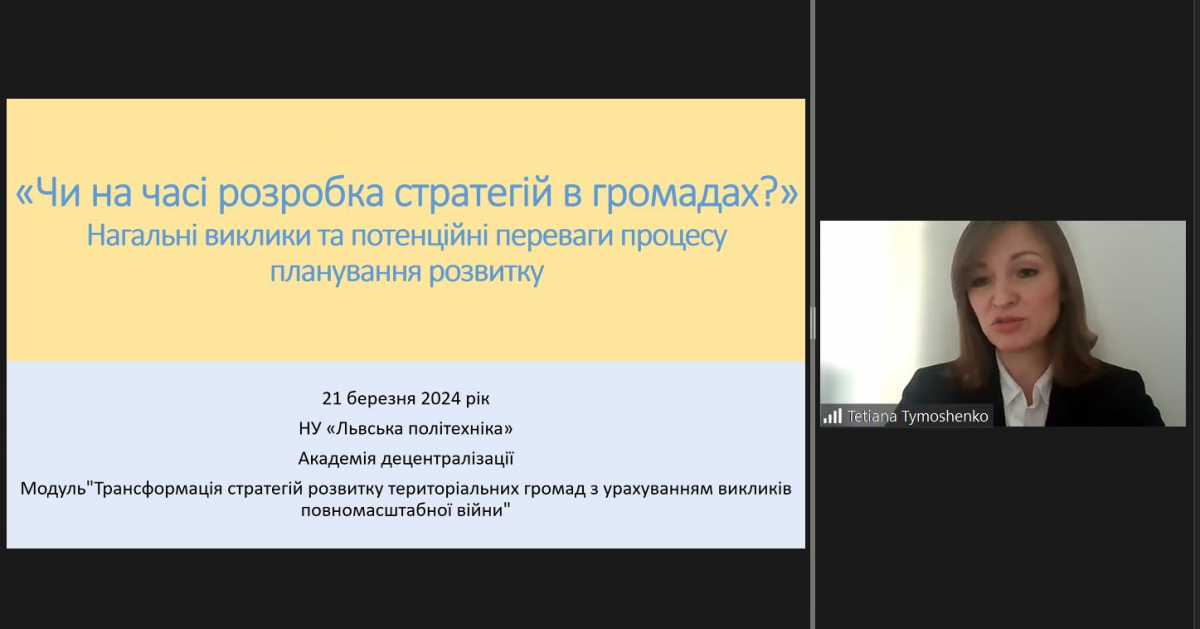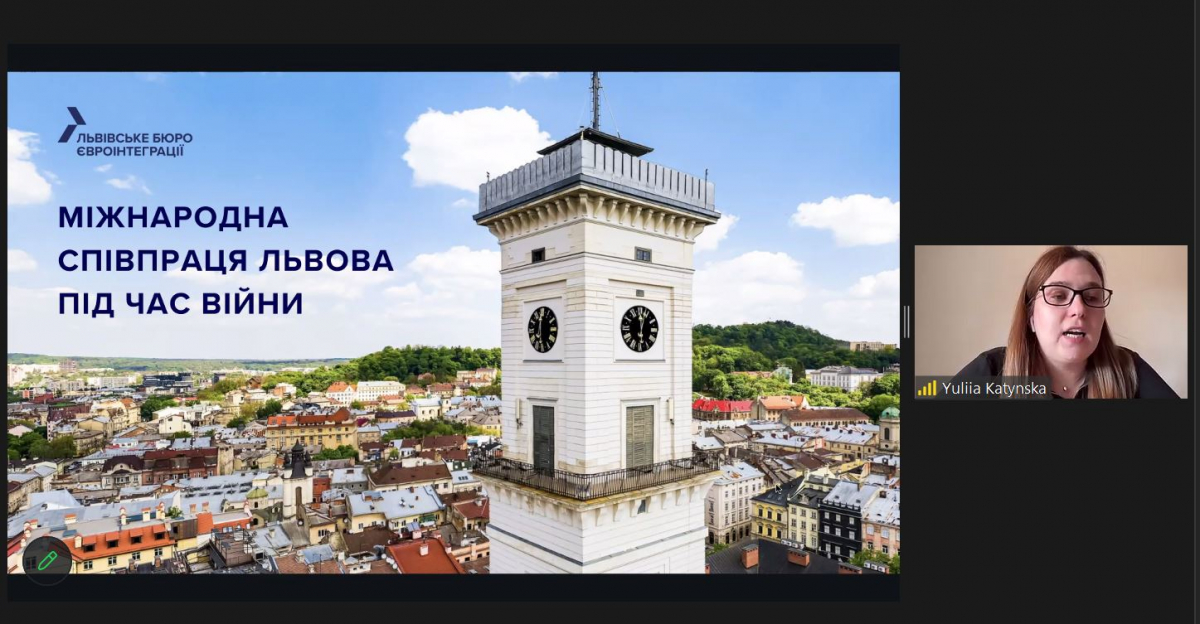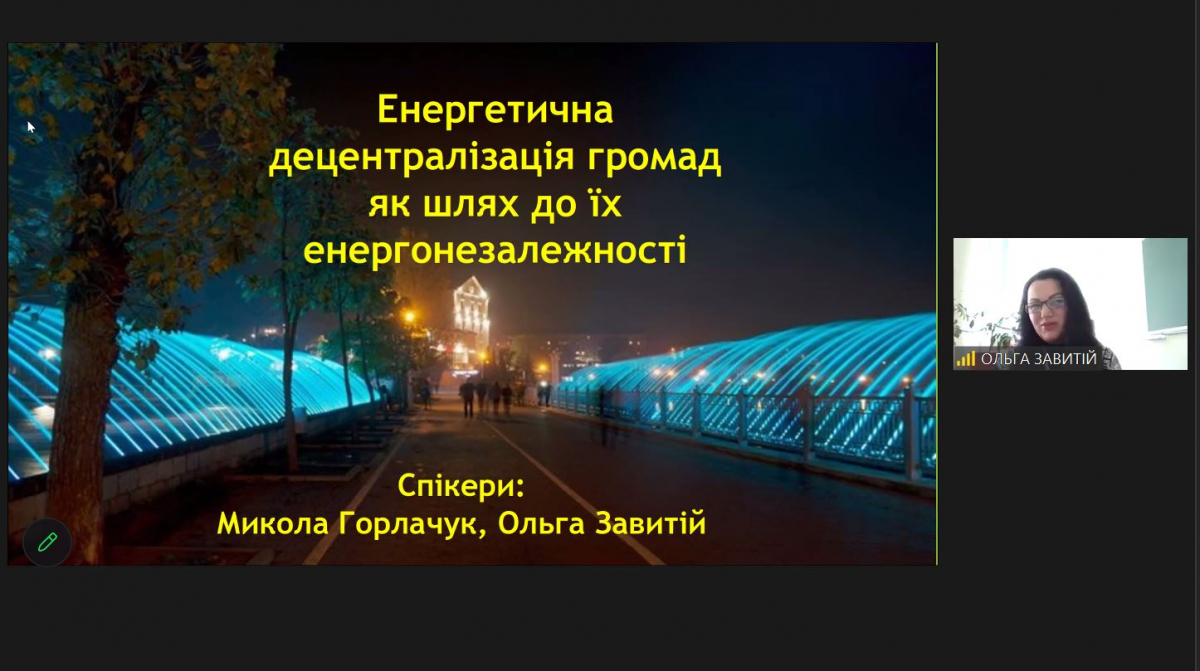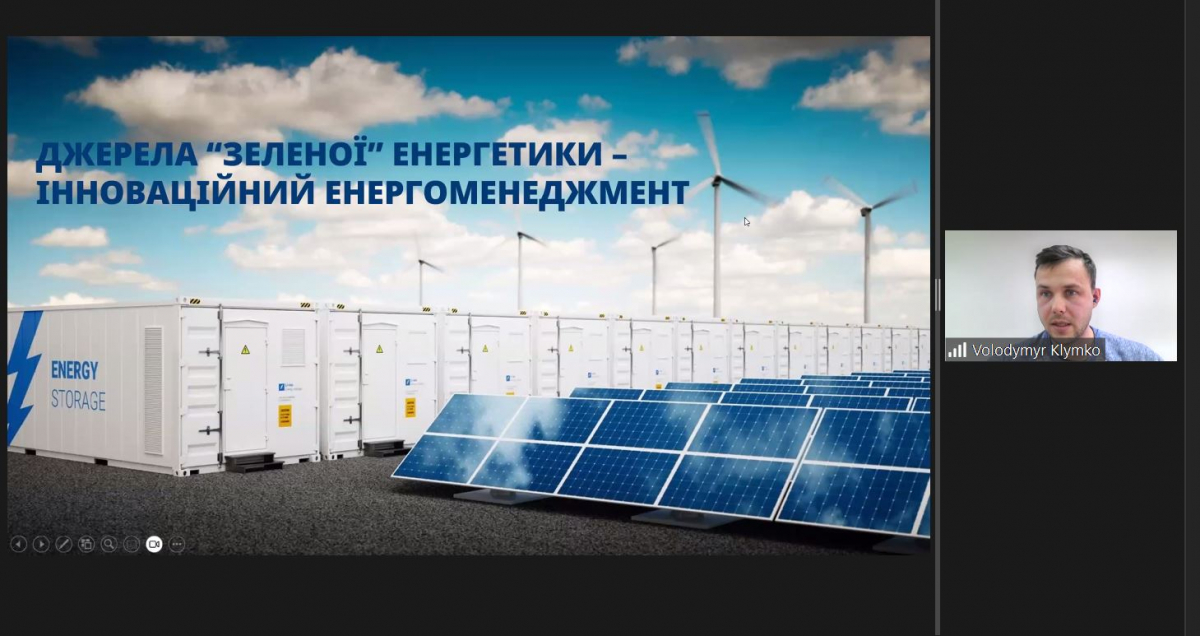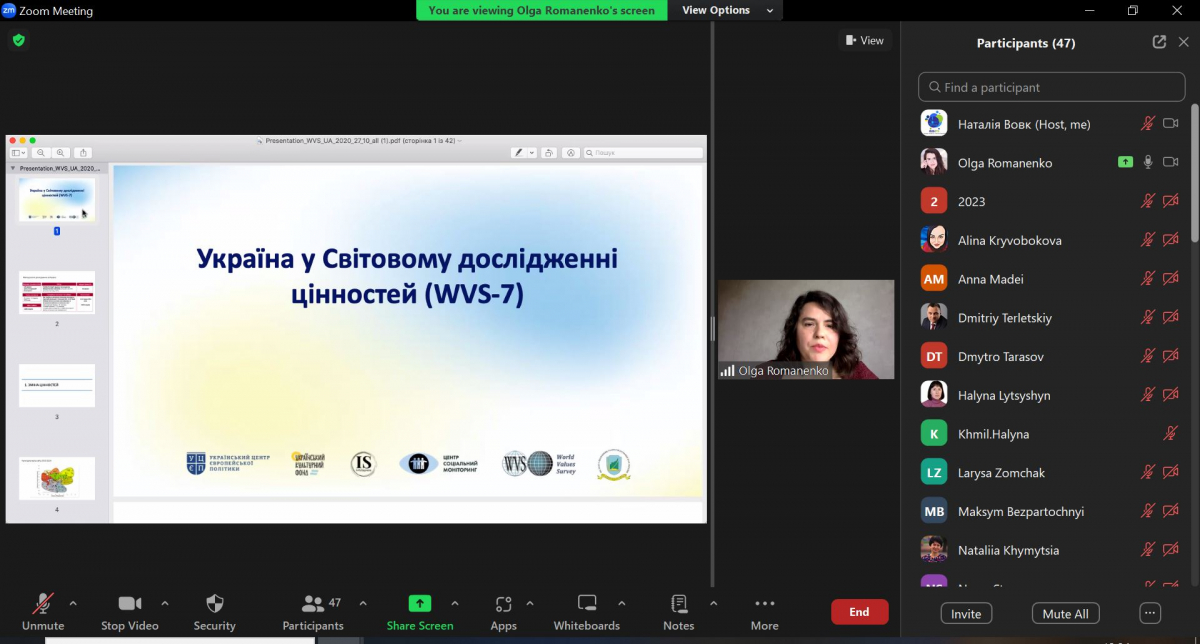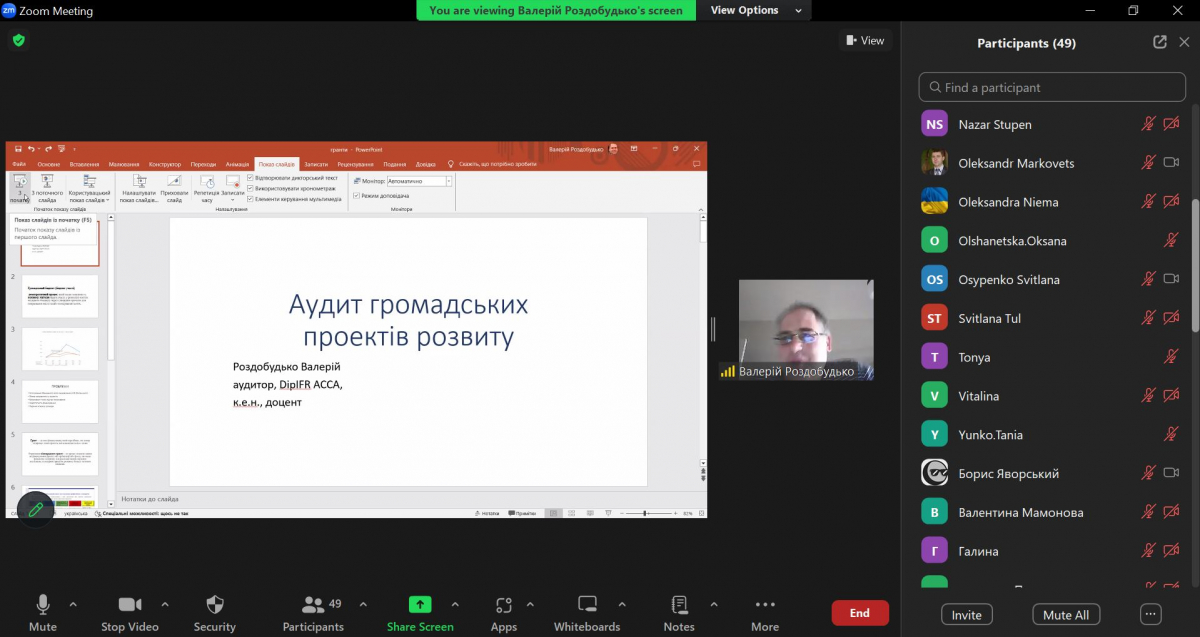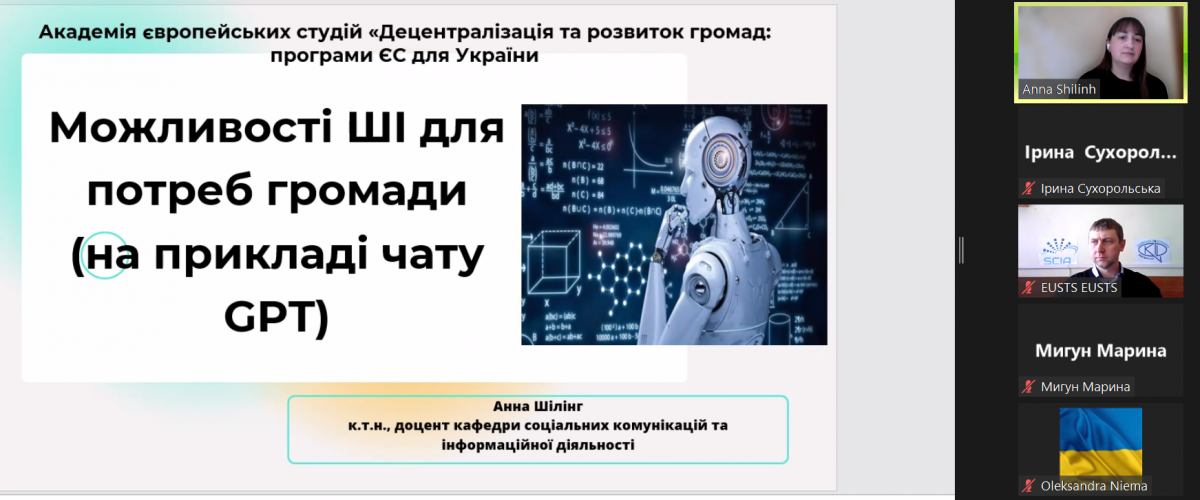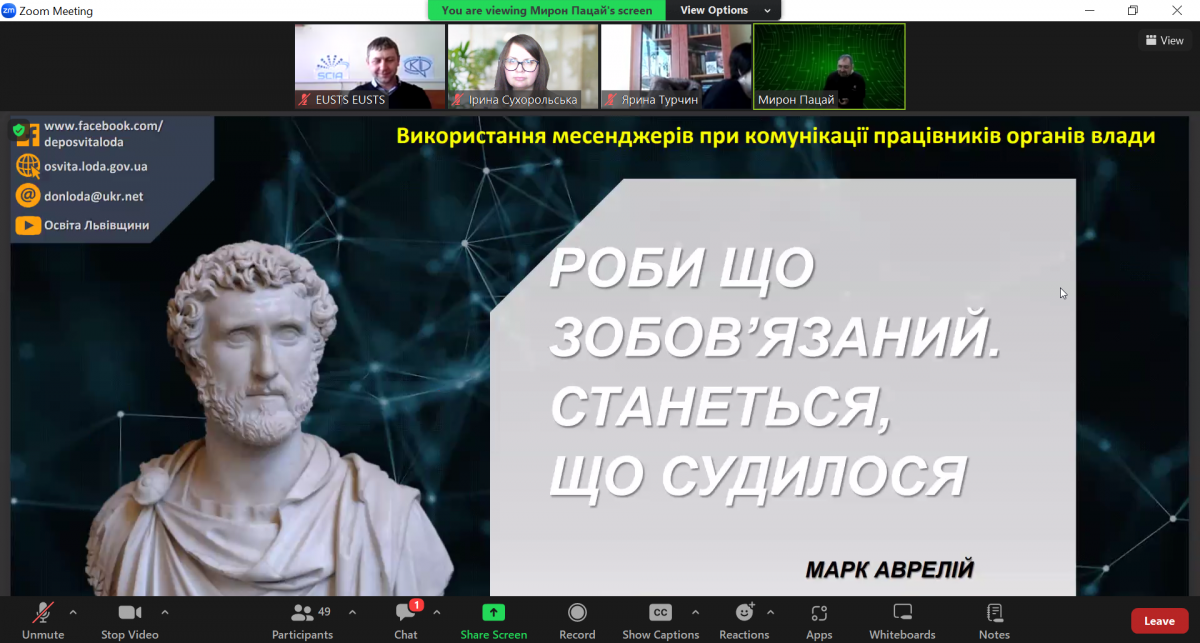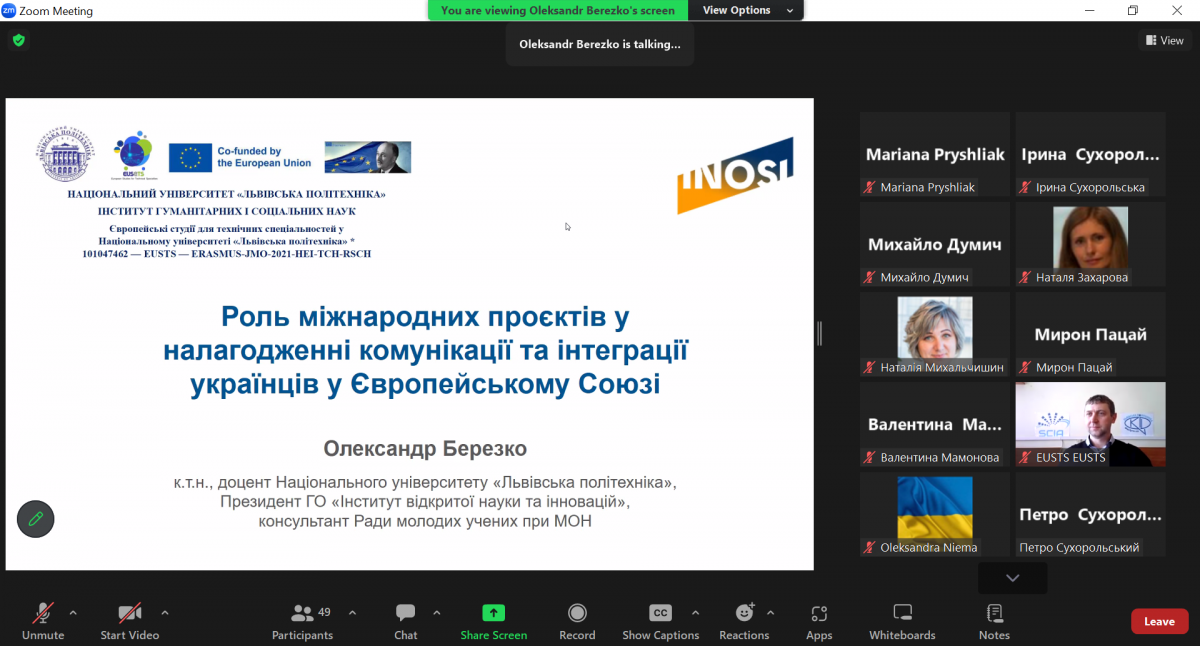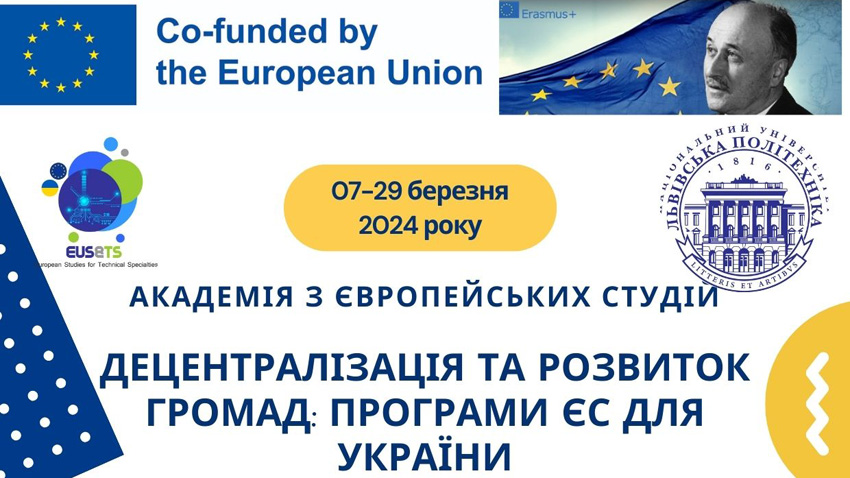In order to promote knowledge about the European Union and community development opportunities in Ukraine, the team of the European Studies for Technical Specialties at Lviv Polytechnic National University (EUSTS) project, with the support of the EU Erasmus+ Jean Monnet Program, held the second European Studies Academy “Decentralization and Community Development: EU Programs for Ukraine” in March 2024.
The Academy program consisted of eight six-hour modules:
- Module 1: Decentralization and community development in times of crisis (keynote speaker: Yaryna Turchyn, Doctor of Political Science, Professor, Head of the Institute of Humanities and Social Sciences);
- Module 2. International programs to support territorial communities (key speaker - Olha Ivasechko, PhD in Political Science, Associate Professor of Political Science and International Relations Department)
- Module 3: Donor Support for Ukrainian Communities (keynote speaker - Olena Lukachuk, PhD in History, Associate Professor of Political Science and International Relations Department);
- Module 4. Green post-war recovery: national, regional and local dimensions (keynote speaker - Iryna Sukhorolska, PhD in Political Science, Associate Professor of Political Science and International Relations Department);
- Module 5: Transformation of strategies for the development of territorial communities in view of the challenges of a full-scale war (keynote speaker: Oleh Tsebenko, PhD in Political Science, Associate Professor, Deputy Director of the Institute of Humanities and Social Sciences Department);
- Module 6: Sustainable Development Innovation and Green City: From Plans to Projects (keynote speaker: Lidia Kasha, PhD in technical sciences, Associate Professor, Deputy Director of the Institute of Energy and Control Systems);
- Module 7: European Integration: Formation of Values through Joint Projects (keynote speaker - Nataliia Vovk, PhD in History, Associate Professor of the Department of Social Communications and Information Activities Department);
- Module 8: Using information technologies to establish community communication in the context of decentralization: EU experience and Ukrainian realities (keynote speaker - Oleksandr Markovets, PhD in technical sciences, Associate Professor, Head of the Social Communications and Information Activity).
During the modules, important issues of decentralization and community development in Ukraine and the EU were discussed, including: how decentralization brings Ukraine closer to the EU; peculiarities of implementing digital tools in communities; prospects for post-war recovery and development of Ukrainian cities; key grant opportunities for Ukrainian local communities, through which they can attract financial resources from the EU and other sources to develop their own communities; financing and creation of “green cities” following the example of EU countries; studying the peculiarities of forming the values of thunder.
The Academy's speakers included leading Ukrainian and foreign experts, academics, MPs, and representatives of local authorities at various levels:
- Teresa Astramowicz-Lake, PhD in Political Science, Professor at the University of Warmia and Mazury, Head of the International Cooperation Commission of the Sejmik of the Warmia and Mazury Voivodeship;
- Oksana Yurynets, Member of Parliament of Ukraine of the VIII convocation, Doctor of Economics, Professor of the Department of Foreign Economic and Customs Activities at Lviv Polytechnic National University, Head of the NGO “Agency for European Cooperation”;
- Danylo Sorokovyi, Executive Director of the Association of Local Councils “Lviv Oblast Councils”;
- Denys Ivanov, Head of the DREAM Implementation Unit, State Digital Ecosystem for Recovery Management;
- Mykhailo Moroz, Deputy Head of the U-LEAD with Europe Regional Development Department;
- Marta Suprun, international cooperation expert at Cities 4 Cities United 4 Ukraine;
- Danylo Petriv, project manager of the Lviv Regional Development Agency;
- Ihor Nazar, Community Development Specialist, UNDP Ukraine;
- Vadym Tabakera, Deputy Director of the Economic Policy Department - Head of the Regional Development Department of the Lviv Regional Military Administration;
- Olha Bilonizhka, Head of Programs and Projects at the Ukrainian Zero Waste Alliance NGO;
- Natalia Andrusevych, Head of the Board of the Resource and Analysis Center “Society and Environment”;
- Yurii Polianskyi, project manager of the municipal institution Urban Institute, PhD student at Ivan Franko National University of Lviv, expert in urban studies, sustainable development and climate change;
- Natalia Selyukova, strategic communications expert, coordinator of the project “Women's Support and Development Centers” in Zaporizhzhia region with the support of UN Women, experience in DOBRE, Ucan Ukraine (USAID), ULEAD (GIZ) programs;
- Diana Popfalushi, eco-activist, project manager of the NGO Plateau, co-host of the podcast “Explain Eco”;
- Mariana Ivakhiv, Head of the Department of Social and Economic Development and Investment Planning at Pidberiztsi Village Council, Lviv Oblast;
- Taras Repytskyi, deputy of the Lviv City Council, chairman of the board of the Institute for Social Initiatives, founder of the Sykhiv Media NGO, Veteran Media NGO, chairman of condominiums;
- Olha Zavytiy, PhD in Economics, Associate Professor of Business Analytics and Innovation Engineering at the Western Ukrainian National University;
- Volodymyr Klymko, Ph.D., Lead Engineer, Energy Management Systems Development for Renewable Energy Power Plants at Emerson Electric;
- Olga Romanenko, PhD in Economics, Associate Professor at the State University of Trade and Economics;
- Ilya Neskhodovskyi, PhD in Economics, public figure, Head of Analytical Direction of the Network for the Protection of National Interests “ANTS”;
- Valeriy Rozdobudko, PhD in Economics, Associate Professor at the State University of Trade and Economics, Director of an audit firm;
- Mariia Kurylo, Deputy Head of the Information Policy Department, Head of the Press Service Department of the Lviv Regional Military Administration;
- Oleksandr Berezko, PhD, Associate Professor of the Department of Social Communications and Information Activity, Lviv Polytechnic National University, President of the European Council of Graduate Students and Young Researchers Eurodoc, consultant to the Council of Young Scientists at the Ministry of Education and Science of Ukraine;
- Myron Patsai, Deputy Head of the Department of Technical Supervision and Computer Support of Lviv Regional State Administration;
- and others.
Based on the results of the successful testing, 130 certificates were issued to the Academy's students, including students and teachers of leading Ukrainian higher education institutions (Vasyl' Stus Donetsk National University, Khmelnytsky National University, O. M. Beketov Kharkiv National University of Urban Economy, H. S. Skovoroda Kharkiv National Pedagogical University, National University “Odesa Law Academy”), representatives of local authorities and amalgamated territorial communities (Lviv City Council, Lviv Community Office in Malekhiv village, Rava-Ruska City Council, etc.), as well as other organizations (Civic Research Support Network “Dovkola”, Lviv Bureau for European Integration, etc.).
The participants of the Academy gave their positive feedback on the work of the Academy, including the following:
- “Participation in the Academy of European Studies gave me the opportunity to gain in-depth knowledge and understanding of the processes of decentralization and community development in our country. The program provided me with important insights into how the European Union contributes to the development of our country through various initiatives and funding programs. The lectures were very informative and useful. I am grateful to the organizers for such a valuable experience!”
- “Participation in the Academy of European Studies program ‘Decentralization and Community Development: EU Programs for Ukraine’ allowed me to dive into the practical issues of decentralization. The comprehensive modules of the program provided a detailed look at the complex mechanisms of decentralization, as well as how EU programs play an important role in promoting community development in Ukraine. The speakers were professionally knowledgeable and demonstrated an understanding of the challenges and opportunities faced by Ukrainian communities. The discussions were not only informative, but also inspiring, showing real examples of successful initiatives and their positive impact on local communities. In addition, the focus on EU programs adapted for Ukraine provided a comprehensive understanding of the support mechanisms available for community development projects. From funding opportunities to best practices in project management. The meetings within the program provided participants with valuable tools to promote positive changes in their communities. The program participants had the opportunity to exchange ideas on practical strategies for the effective implementation of decentralization policy. The collaborative atmosphere facilitated meaningful discussions and networking among professionals from different backgrounds. In general, my participation in the Academy of European Studies program was a useful experience, a deeper understanding of the principles of decentralization, the impact of EU programs and a renewed sense of commitment to contribute to community development initiatives in Ukraine. Many thanks to the organizers of the Academy of European Studies for implementing the program “Decentralization and Community Development: EU Programs for Ukraine”. I hope that your initiative will expand, and later, after our victory over the aggressor, you will be able to cover all territorial communities and share with them theoretical and practical experience in the field of decentralization and community development.”
- “Participation in the Academy of European Studies gave me the opportunity to learn about decentralization and community development in times of crisis. On the example of Poland, I considered strategic planning for the development of territorial communities. I learned what opportunities are open to territorial communities in cooperation with U-LEAD. We managed to adopt the experience of the Chervonohrad and Drohobych communities to implement new ideas in our territorial community. I learned about the donor support of Ukrainian hromadas by the Republic of Lithuania on specific examples. It was interesting to hear about the energy decentralization of communities as a way to their energy independence. The topic of transformation of community development strategies in view of the challenges of a full-scale war deserves special attention. I will definitely recommend this course to my colleagues and friends who are involved in local government”
The project team would like to thank all the participants of the Academy for their active participation, and the speakers for their interesting and informative reports!
More information about the EUSTS project can be found on its website as part of the Lviv Polytechnic Portal.
